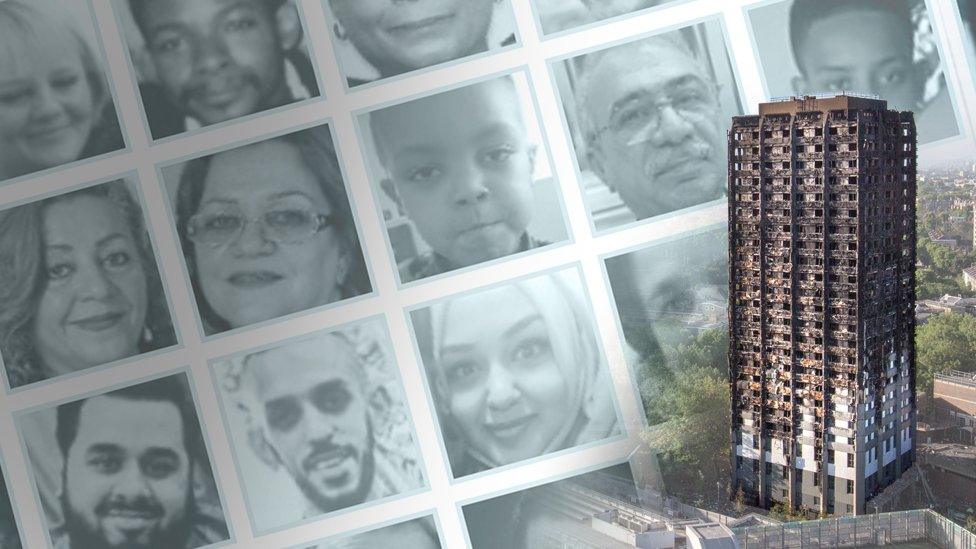Grenfell Tower fire: Inquiry told firms 'deny responsibility'
- Published
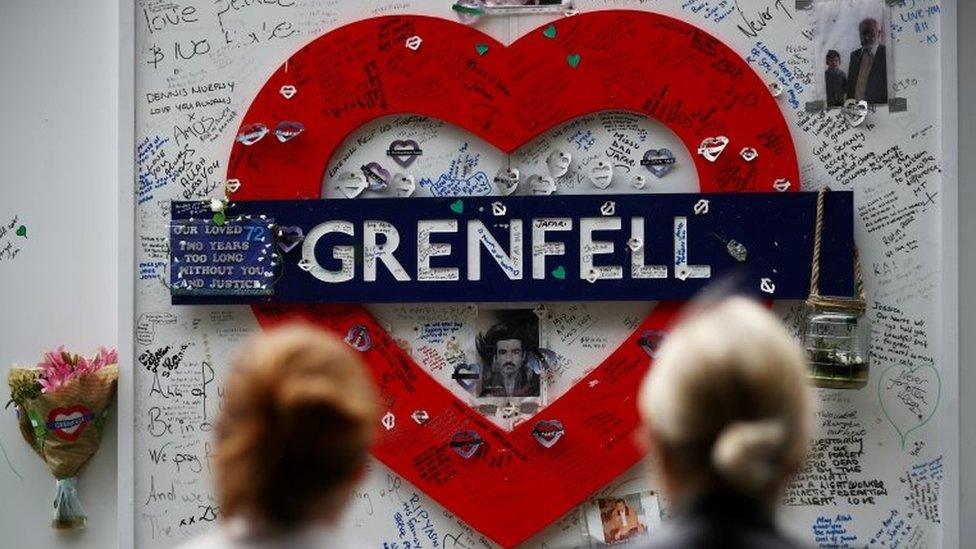
None of the companies involved in the refurbishment of Grenfell Tower has accepted responsibility for the deadly fire, an inquiry has heard.
Richard Millett QC, the inquiry's chief lawyer, said each claimed what happened was "someone else's fault".
Experts have previously said the work failed to meet building regulations.
The second phase of the investigation into the 2017 disaster at the London high-rise block, which claimed 72 lives, started on Monday.
It is going to look at how the building came to be covered in flammable cladding during its refurbishment.
Mr Millett said that, with the "sole exception" of the Royal Borough of Kensington and Chelsea - which accepted that the refurbishment work should not have been signed off - all organisations had denied responsibility in "carefully crafted statements".
"Any member of the public reading those statements and taking them all at face value would be forced to conclude that... nobody made any serious or causative mistakes," he said.
"In every case, what happened was, as each of them would have it, someone else's fault."
'Dangerous' panels
The tower, built in 1974, was extensively refurbished between 2012 and 2016.
Mr Millett stressed that the first part of the inquiry found the work "did not comply with certain key aspects of the building regulations".
The inquiry also heard that employees at the US metals manufacturer Arconic, which supplied the cladding for the west London tower block, knew before the fire that its panels were "dangerous" and should only be used on "small buildings".
A barrister for building contractor Rydon said safety concerns were raised in internal Arconic emails in 2011 and again in 2016.
That's when Arconic manager Claude Wehrle said the Grenfell cladding was "dangerous on [the] facades" and should be replaced.
The cladding subcontractor Harley Facades said it did not choose the materials but had confidence in them, as the cladding had not ignited during a fire in 2012 in Camden, at a building it had refurbished five years before.
The inquiry's first phase found the cladding was the "principal" reason for the rapid and "profoundly shocking" spread of the fire at the 25-storey building in June 2017.
Families and friends of victims were present in the hearing room in Paddington as inquiry chairman Sir Martin Moore-Bick opened the second phase.

Analysis
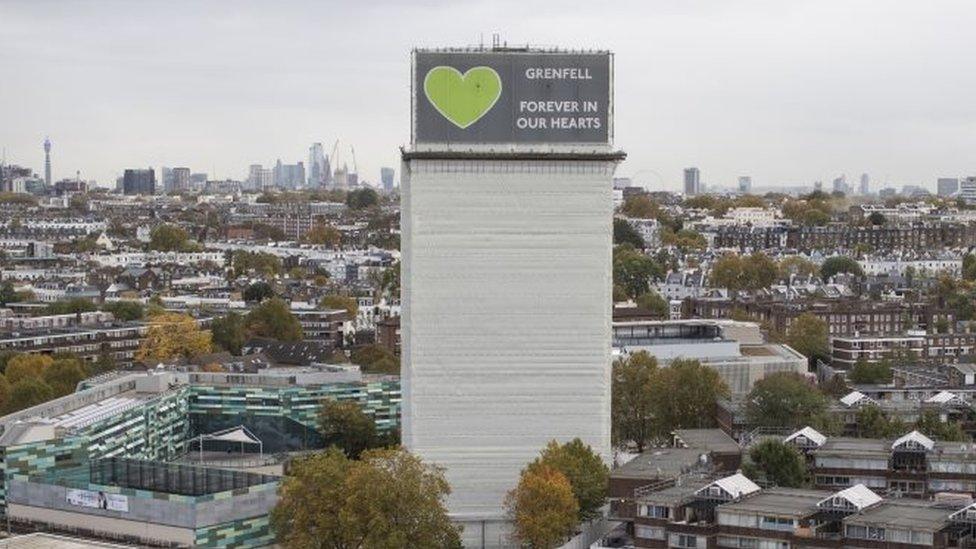
By BBC home affairs correspondent Tom Symonds
The first part of the Grenfell Inquiry had the task of examining the events of just one night.
Part two could go back years in its search to explain the tragedy.
It will look and feel different. A new hearing centre, closer to the community, replaces the previous unpopular conference room in the heart of London's legal district.
Instead of the harrowing accounts of firefighters and residents, the evidence will emerge from emails, technical specifications and planning documents.
It will be slow going, but it should get to the heart of what went wrong.
Because although the training and management of the firefighters was criticised in part one, they were not the cause of the fire.
The questions which will be answered are these:
Why were dangerous materials chosen to refurbish an ageing tower?
Who knew they could be dangerous?
What part did the complex system of building regulations play in the tragedy and the following crisis in fire safety?
And how do we prevent this ever happening again?
However dry the evidence could become, all those involved know this is about getting justice for those who died, because, at the end of this process, the public inquiry could be followed by a criminal trial.

Opening submissions for the first three parts of the second phase of the inquiry are expected this week.
These include an overview of the primary refurbishment of Grenfell Tower - including the cladding, the testing and certification of the cladding, and the fire safety measures including complaints and communications with the residents.
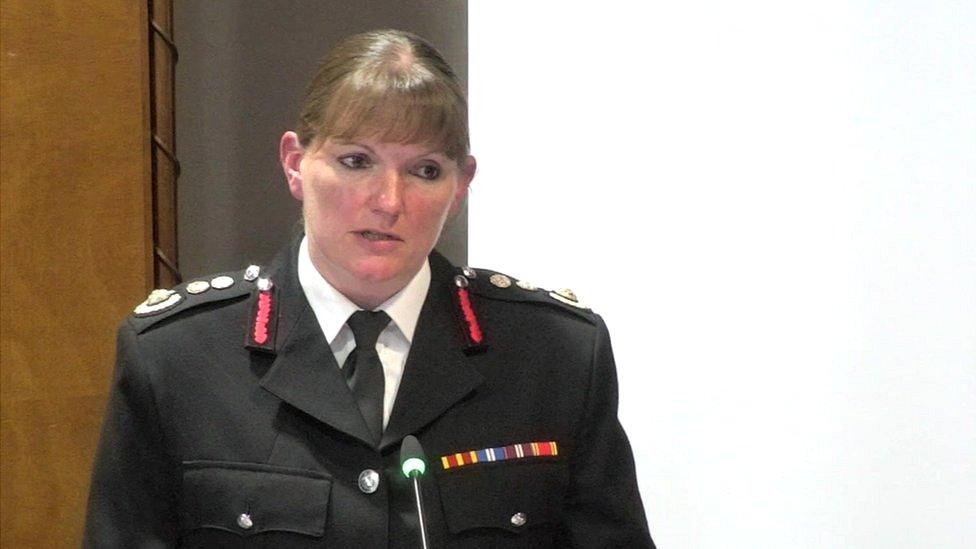
Former fire commissioner Dany Cotton retired early after facing criticism
The inquiry's first phase also concluded that "many more lives" could have been saved if the advice to residents to "stay put" had been abandoned earlier.
It was highly critical of the London Fire Brigade and fire commissioner Dany Cotton, saying preparations for such a fire were "gravely inadequate".
Ms Cotton retired early after facing calls from victims' families to resign.
She had told the inquiry she would not have changed anything about the way her crews responded to the blaze, provoking anger from survivors and victims' families.
The start of the second phase of the inquiry comes days after newly-appointed panel member Benita Mehra resigned over her links to Arconic's charitable arm.
- Published25 January 2020
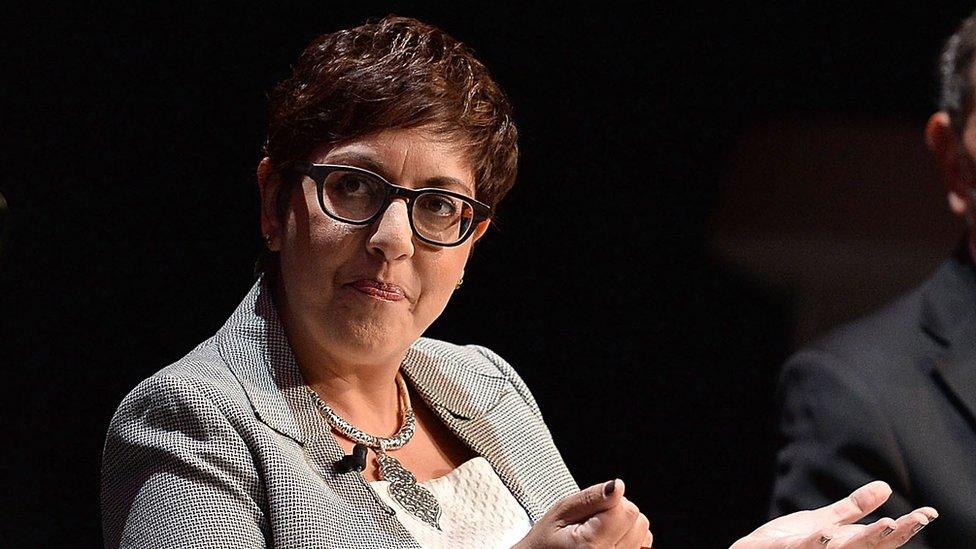
- Published16 January 2020

- Published10 December 2019
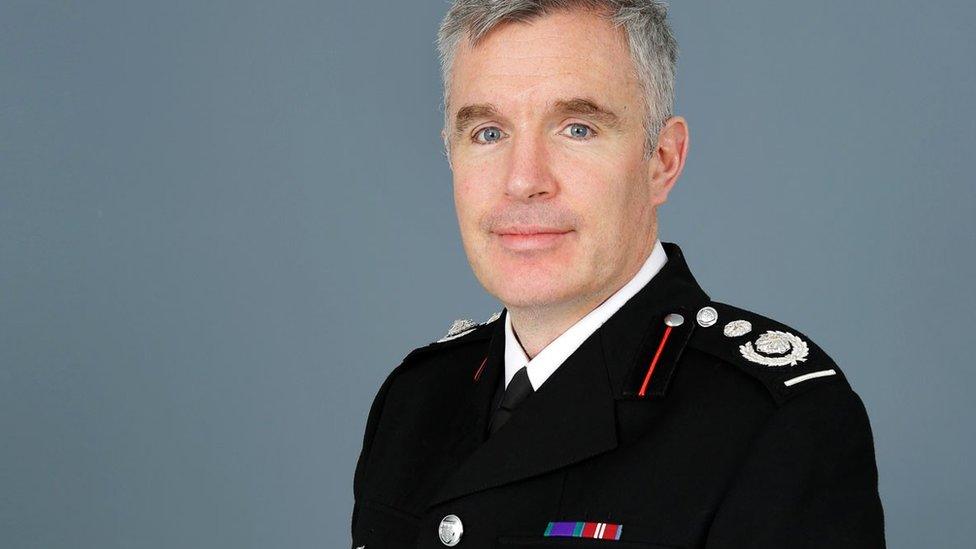
- Published29 October 2019
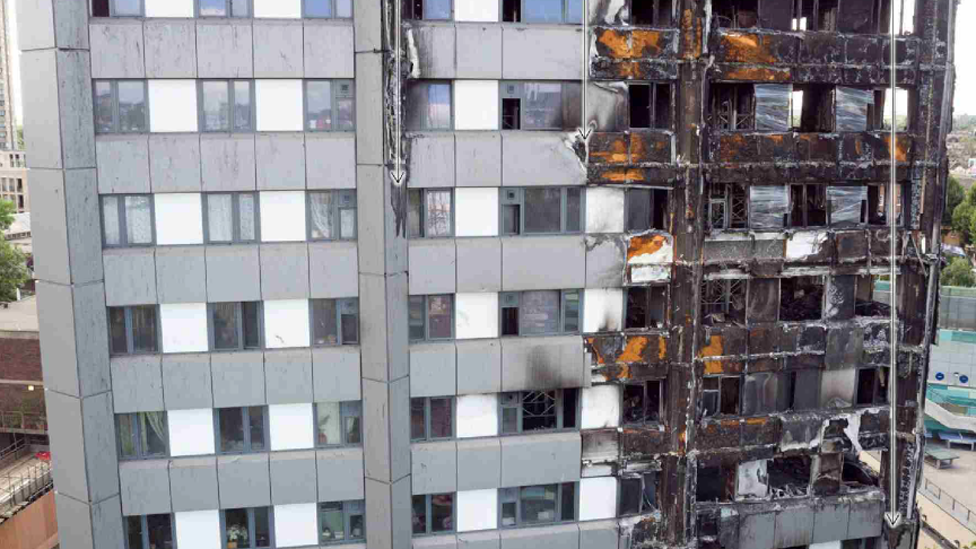
- Published30 October 2019
- Published30 May 2018
